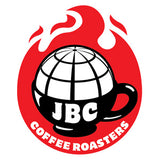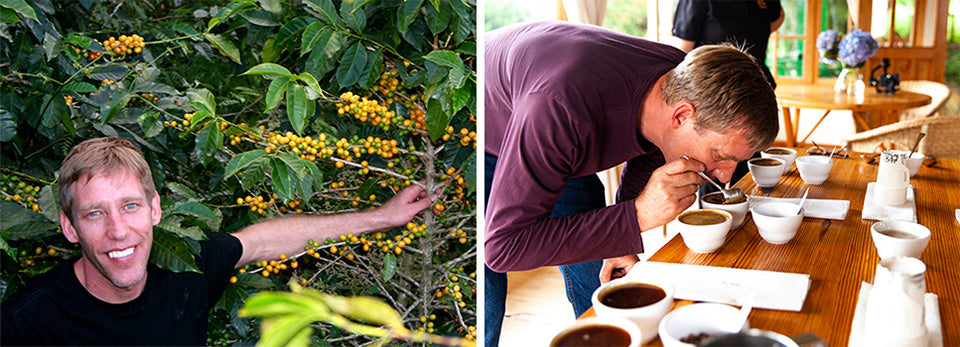Story
Our Gogogu Ethiopia hails from the Uraga district of Guji in Ethiopia’s Oromia region. Guji is one of Ethiopia’s oldest coffee growing regions and is known for producing exceptional and bright coffees. Farmers deliver ripe coffee cherry by mule, donkey, and horse to Gogogu’s processing center in the town of Dida Haro Hada Raro. Traditional growing methods in Ethiopia are devoid of using any fertilizer, pesticides, or fungicides. This coffee is also shade-grown, with farmers inter-cropping their coffee trees with other foods (false banana trees, maize, Korch, Wanza, and Sesa) to make the most use of their often very small farms. Inter-cropping improves soil health and is a more sustainable farming option for a number of reasons including being much more bird and environmentally friendly. The soil in the area is a sandy loam that is both fertile and well-draining, with excellent water retention. With proper planting methods, the soil supports high-quality coffee without requiring fertilizer. Gogogu is the Oromiffa word for dry and aslo the name of the principal mountain in the area. Farming and coffee-growing is very much a way of life among the Oromo people in Guji who continue to preserve ancestral traditions while producing notable coffees.
Gogogu
Gogogu
Couldn't load pickup availability
Characteristics
Light
Silky
Juicy
Green Grape, White Florals, Orange, Lemongrass
Smallholder Farmers
2340 MASL
Ethiopia Landacre
Washed, Dried on Raised Beds
Guji, Ethiopia
Story
Our Gogogu Ethiopia hails from the Uraga district of Guji in Ethiopia’s Oromia region. Guji is one of Ethiopia’s oldest coffee growing regions and is known for producing exceptional and bright coffees. Farmers deliver ripe coffee cherry by mule, donkey, and horse to Gogogu’s processing center in the town of Dida Haro Hada Raro. Traditional growing methods in Ethiopia are devoid of using any fertilizer, pesticides, or fungicides. This coffee is also shade-grown, with farmers inter-cropping their coffee trees with other foods (false banana trees, maize, Korch, Wanza, and Sesa) to make the most use of their often very small farms. Inter-cropping improves soil health and is a more sustainable farming option for a number of reasons including being much more bird and environmentally friendly. The soil in the area is a sandy loam that is both fertile and well-draining, with excellent water retention. With proper planting methods, the soil supports high-quality coffee without requiring fertilizer. Gogogu is the Oromiffa word for dry and aslo the name of the principal mountain in the area. Farming and coffee-growing is very much a way of life among the Oromo people in Guji who continue to preserve ancestral traditions while producing notable coffees.






